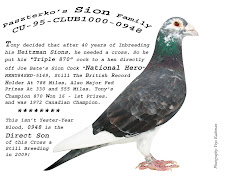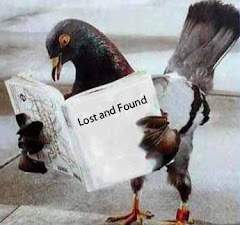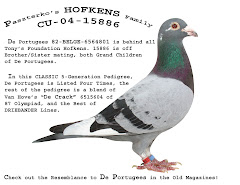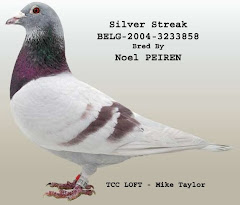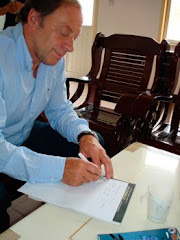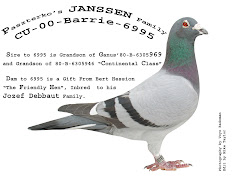The Sun
November 27, 2007
PIGEON fanciers were furious last night after a tax swoop on their clubs.
HM Revenue And Customs has ruled their bird racing hobby is not a recognised sport – and as a result they must pay business rates on club buildings.
Clubs across Britain, which support 50,000 members, face shelling out millions of pounds after a storage shed in Northumberland fell into the tax trap.
Escaping the taxman's raid are the "sports" of baton twirling, dragon boat racing, skipping and tug-of-war.
They can formally apply for 80 per cent business tax relief to the Revenue then to their local authority for a 20 per cent cut in rates.
Among the angry fanciers is Lee Fribbins, 34, editor of the Racing Pigeon newsletter, who started racing birds when he was six.
Here Lee, from Colchester, Essex, explains to Sun man DAVID LOWE why he thinks fanciers are the victims of another Revenue And Customs cockup.
"TO claim pigeon racing isn't a sport is totally outrageous. These people obviously have no idea about the hobby that gives pleasure to people all around the world."
For enthusiasts it's a serious game which requires discipline, skill and patience.
Pigeons are the athletes of the sky.
The most expensive bird ever sold cost £127,000. However, most of mine were around £100.
Although the Queen has her own loft in Sandringham, the majority of fanciers aren't wealthy.
They are salt of the earth working men and women who love getting into the fresh air and meeting lots of great people.
It hasn't been easy for us in the past few years.
With the ongoing foot and mouth epidemic lots of shows have been cancelled, so that has affected livelihoods.
Now we're being penalised again with this silly tax decision.
I was just six years old when my grandad bought me half a dozen pigeons for my birthday.
Little did I know it would be the start of a lifelong obsession.
Everyone knows about the effort which goes into training horses and greyhounds for racing – both of which are seen as sport by the Government.
But pigeon racing requires equal dedication and a specially designed schedule to get the best from each bird.
You do get your speedy Linford Christies and Red Rums – the ones with natural talent. Others take quite a bit more work.
Diet has to be closely controlled.
Special high protein feed and vitamin supplements cost the average fancier with 50 birds around £1,000 a year.
Cleaning materials for the lofts probably cost the same – they can be pretty messy, of course.
The breeding season runs from January to March and training goes from April to September.
You take the birds in a basket to somewhere remote – up to 50 miles away – and let them out.
Pigeons can cover vast distances at 50 mph, or faster if there's a tailwind. The fittest birds fly up to 900 miles in marathon races, which I think is amazing.
Most fanciers I know have a shed or two in their garden and might earn a couple of hundred quid in local races.
At federation level I'm a member of Essex Central and Stour Valley.
But this hobby is not what you'd call a business – far from it.
When you tot up the costs and a bit of prize money you may just about break even.
I'm not in it for cash and I reckon 99 per cent of fanciers are the same.
The pigeons fascinate me and I get such a buzz when they arrive home after flying hundreds of miles.
No one knows how they do it, and I don't think we ever will.
But they love to get back to the coop to be with their mates again. It gives me goosebumps just thinking about it
Read more ...







